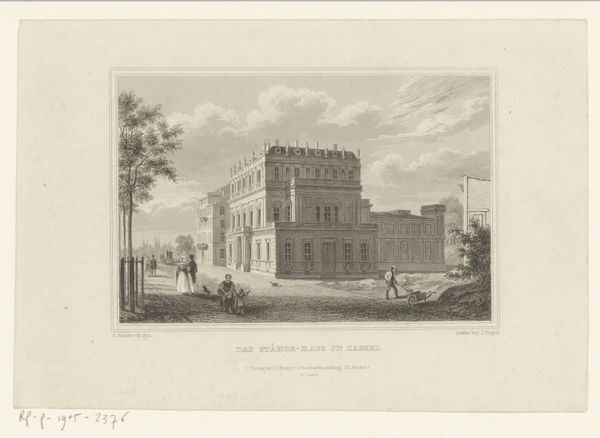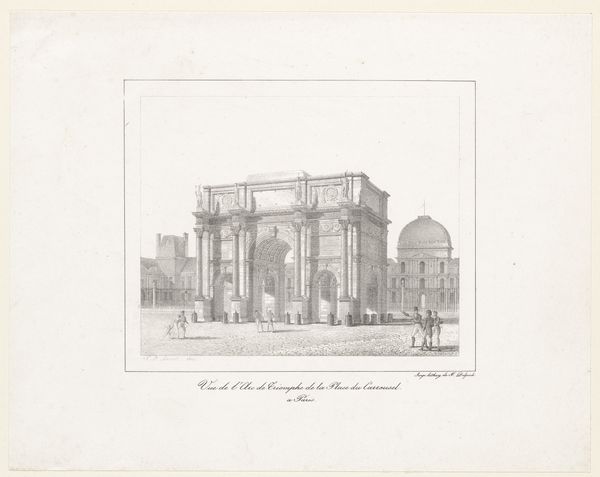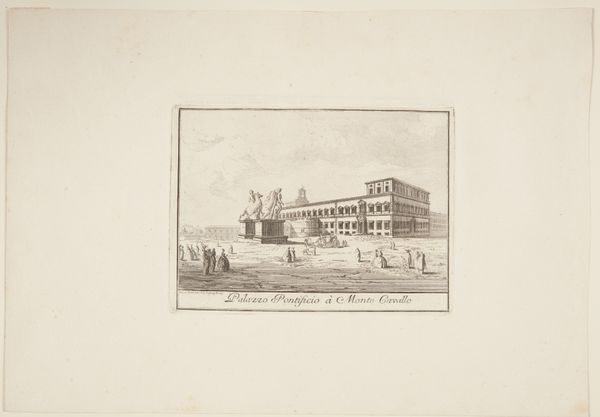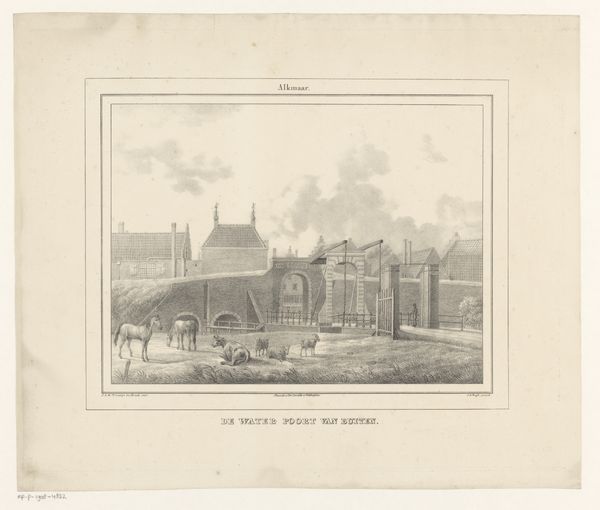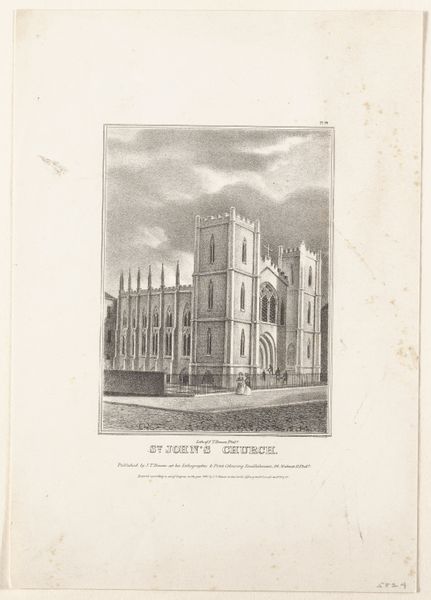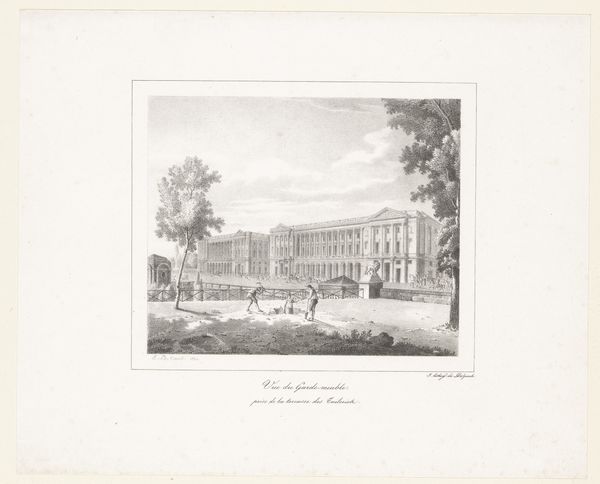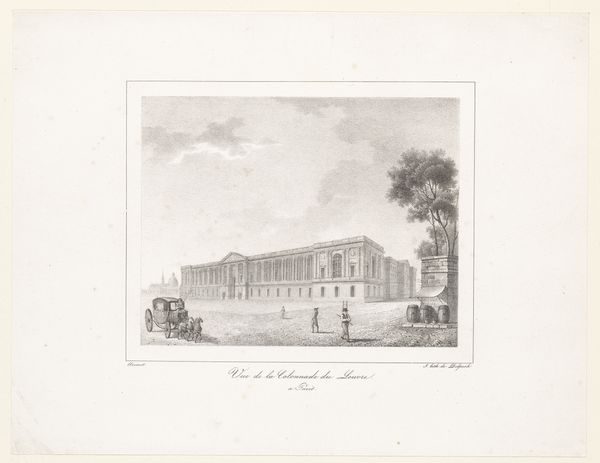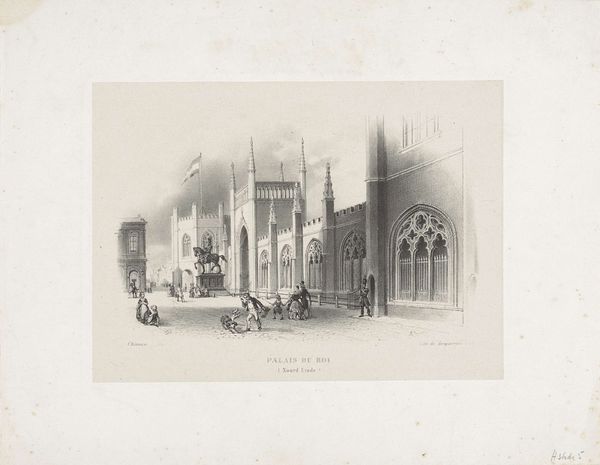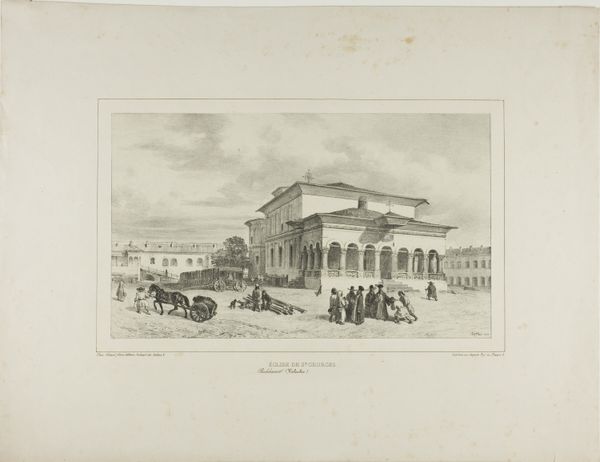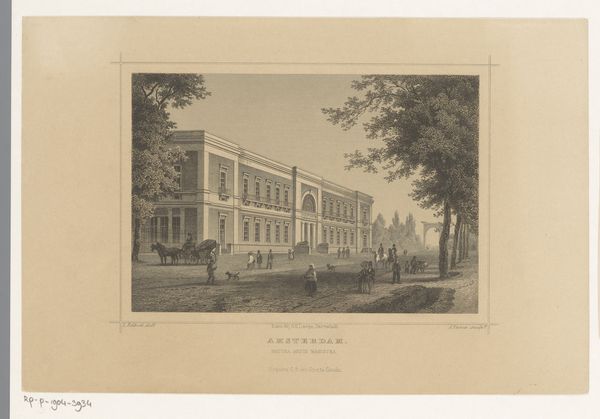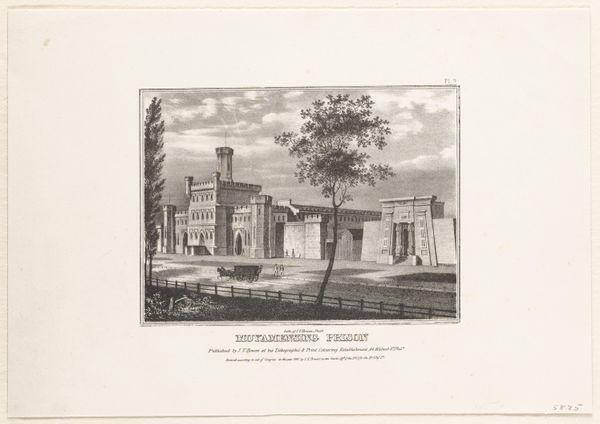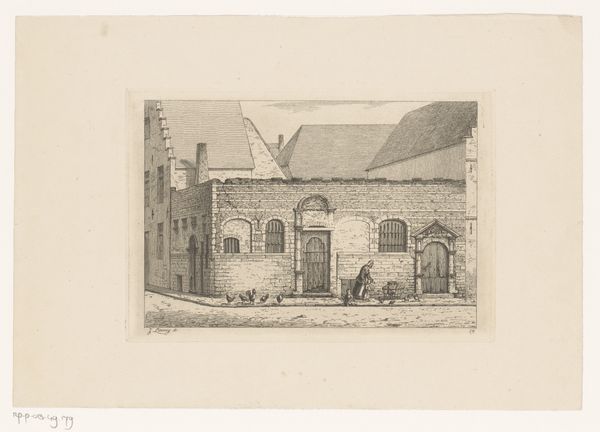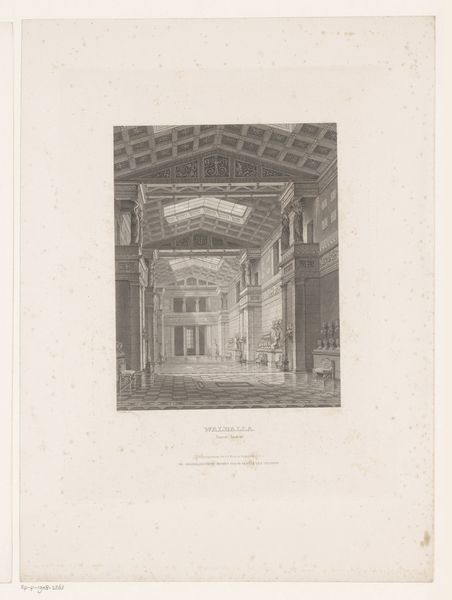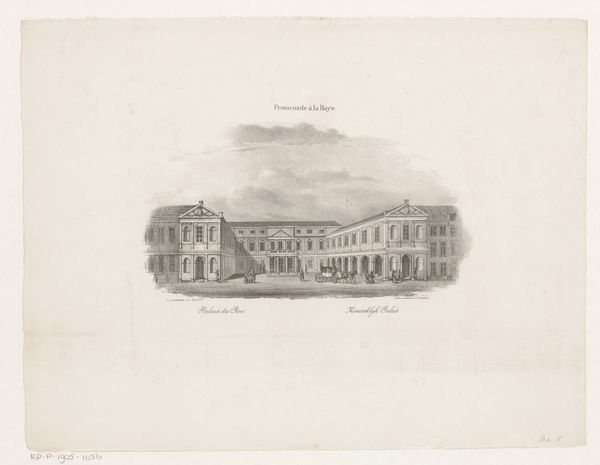
print, engraving, architecture
#
neoclacissism
# print
#
old engraving style
#
cityscape
#
engraving
#
architecture
#
realism
Dimensions: height 243 mm, width 318 mm
Copyright: Rijks Museum: Open Domain
Jean-Baptiste Arnout made this print of the Opéra Le Peletier in Paris using lithography, a technique developed around 1800 that democratized printmaking. Unlike earlier methods that required painstaking engraving or etching, lithography allowed artists to draw directly onto a stone or metal plate with a greasy crayon. The surface would then be treated chemically so that ink only adhered to the drawn areas, allowing for relatively quick and easy reproduction. The soft, grainy texture evident in this print is a direct result of the lithographic process, lending a subtle atmosphere to the scene. It’s fascinating to consider how this new technology allowed for wider distribution of images, fueling the growth of visual culture and, in a way, early mass media. So, next time you see a print, remember to look closely at its materiality and how the artist's chosen process shapes our perception. It challenges our understanding of art as singular, precious objects, and invites us to consider the social and economic forces that shape their production and consumption.
Comments
No comments
Be the first to comment and join the conversation on the ultimate creative platform.
